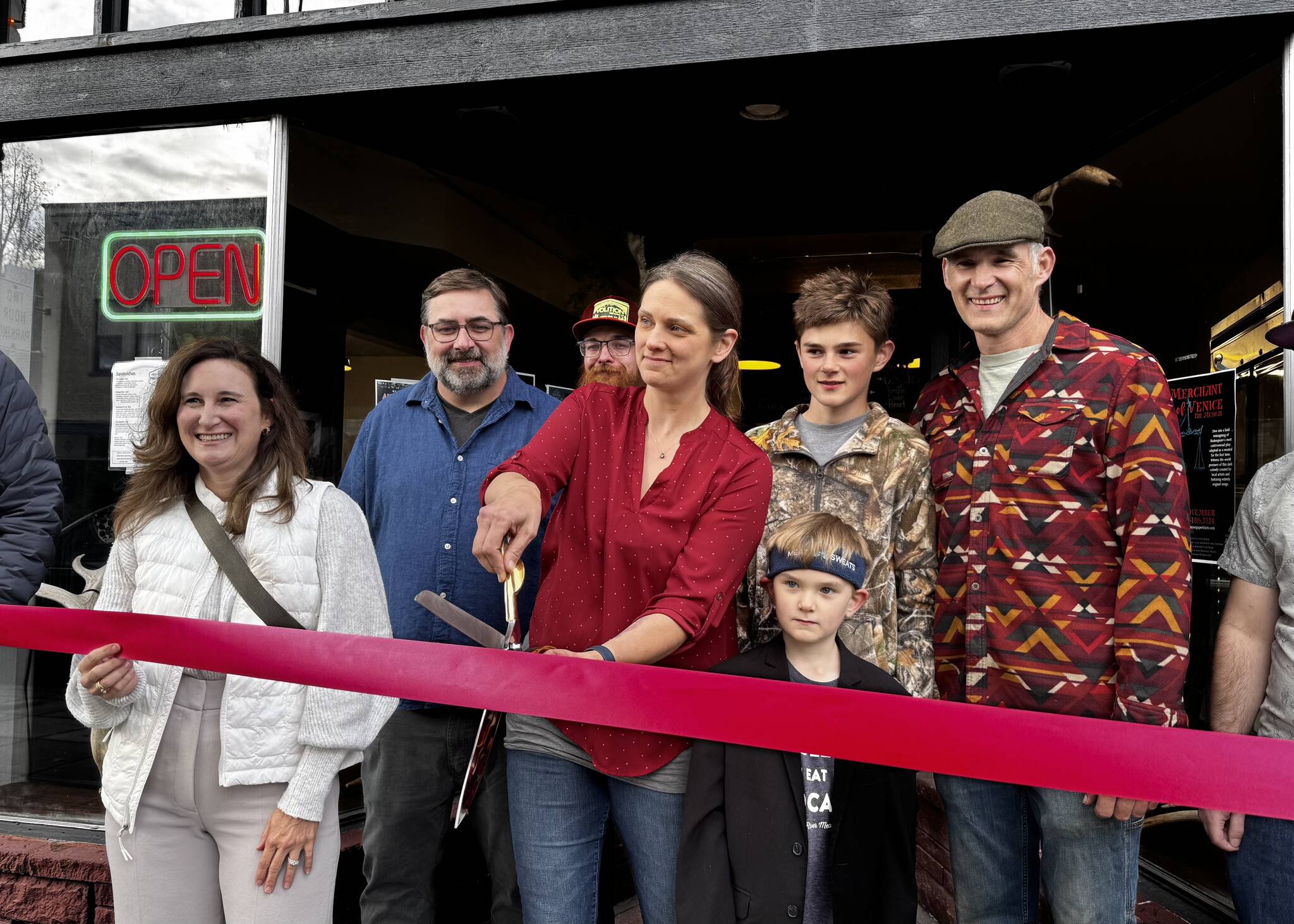After one year in business, the owners of Falling River Meats have realized their dream: selling meat that was raised and processed in their neck of the woods.
Falling River Meats celebrated one year of business in downtown North Bend with a ribbon cutting ceremony Oct. 17 after opening on Oct. 3, 2023. Co-owner Darron Marzolf is a fourth generation butcher, and he and his wife, Christeena Marzolf, have taken over the family trade from his father.
In the last year, the butchery and restaurant has doubled its staff, added new menu items and began selling hyper-local meat thanks to the owners’ own processing facility in Snohomish.
“The Marzolf family are renowned at this point,” North Bend Mayor Mary Miller said at the ceremony. “These are farmers with the best spirit and the heartfeltness of taking care of the animals … We want you to have the greatest success.”
When Falling River opened last year, the Marzolfs told the Snoqualmie Valley Record that they were in the process of updating their Snohomish processing facility, Marzolf Meats, to meet USDA standards. The updates were a result of funding from two U.S. Department of Agriculture Grants, given out after pandemic challenges showed how few and far between processing facilities were. USDA processing standards are required to sell red meat in a retail setting.
Now, the Marzolfs can process their own animals, as well as provide a needed processing facility for small, local farmers. The facility processes on Mondays and Tuesdays and takes beef, pork, lamb, goat and chicken.
It’s not a massive facility — “if somebody wanted to bring us 10 heads of beef, we would have to schedule them over two weeks,” Christeena said. But they have processed for several small farms since opening in July, including farms from Monroe and Carnation. The Marzolfs have also purchased animals from small farms to process and sell at Falling River.
“We finally have all the pieces of the puzzle … but we are far from done,” Christeena said. “It’s going to take a lot more work to make a resilient food economy and stable marketplace for our farmers to sell their animals.”
Falling River will continue sourcing from Seattle’s Preservation Meat Collective and Oregon’s Carman Ranch for high-volume items they can’t get elsewhere, but the business’s priority is spending money at small farms, Christeena said.
“As we get into a rhythm with sourcing from our local farms, there will be some fluctuations with what we have available,” she said.
The next steps, she said, are scaling the operation and connecting with more customers and businesses that have a similar mission. Because Falling River doesn’t deal in commodity meats — meats that are bought and sold on an industrial scale — they have a distinct customer base.
“It takes a lot more work to get those customers who really want to support small-scale and local agriculture,” she said. “Those who want to know the animals they eat only had one bad day.”
Running Falling River and constantly searching for those like-minded individuals can be disheartening, Christeena said.
“Us smaller retail butchers are definitely always having to talk ourselves up,” she said. “I absolutely love it, and also it’s a source of heartache sometimes.”
The Marzolfs are familiar with the trials of small business ownership. The couple previously farmed in the Snoqualmie Valley, has a raw dog food company and sells beloved corn dogs at King County farmers markets. They let go of their farmland earlier this year because they were spread too thin, Christeena said, but they will likely get back into farming down the road.
For now, the Marzolf family — including the sixth generation of butchers, Marcus (13) and Rowan (6) — will serve the community the best way they know how.
“That is what we want, is to support our farmers in our valley, and to make sure that people have access to the most nutrient dense meats,” Christeena said. “It’s as of now that we have all those components that the dream for us is really happening.”



